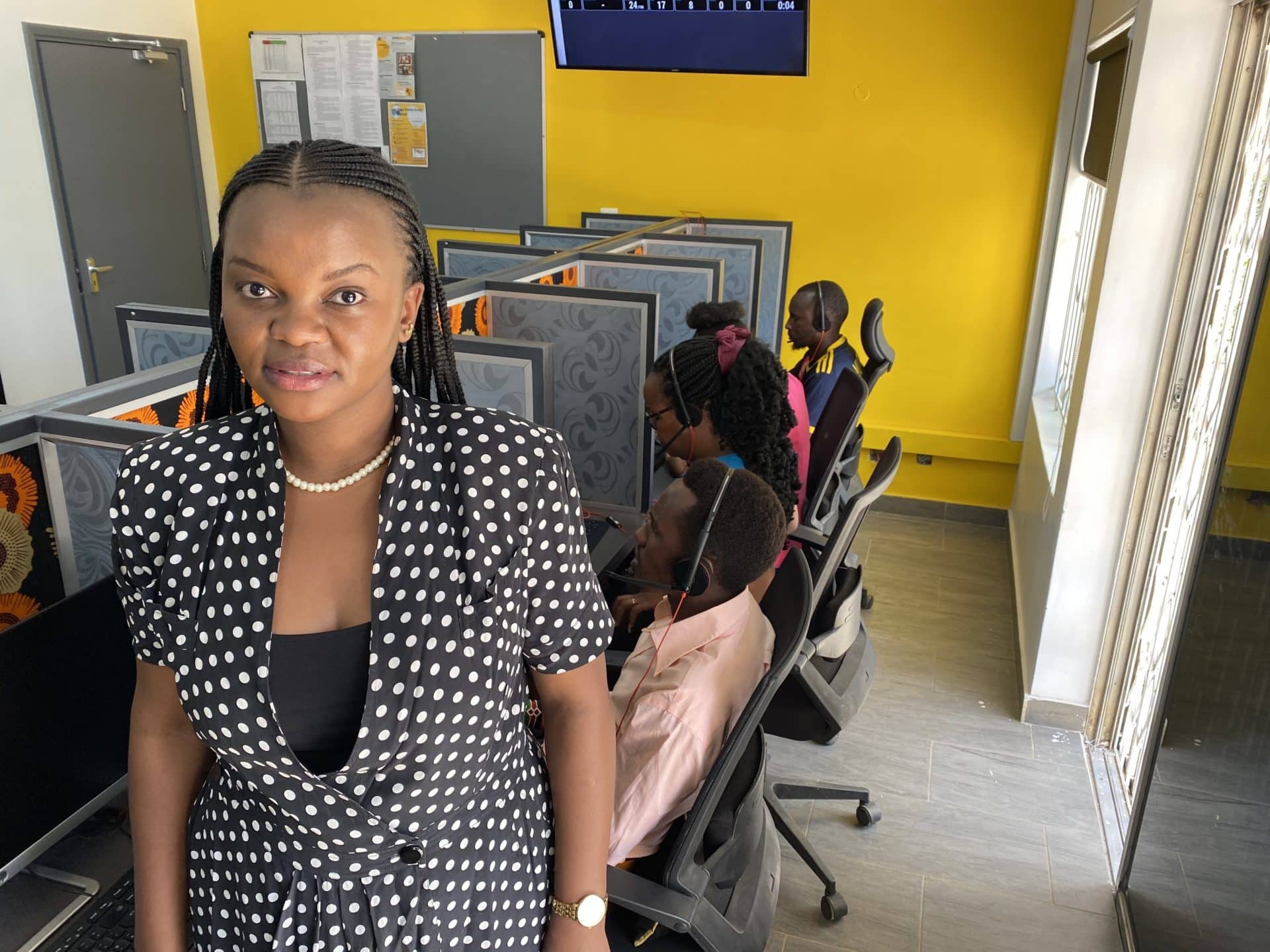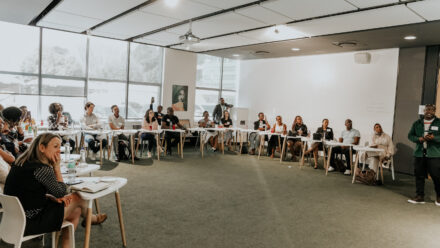Developing Future-Fit Leaders for the Green Economy
- Job title: Developing Future-Fit Leaders for the Green Economy
- Company: Solar Panda Kenya
- Programme: Empowering Managers
- Country: Kenya

Sylvia Achando, 31, was just out of college when she began her career in solar energy. She now leads the collections department at Solar Panda, which provides innovative home solar to remote villages in Kenya.
A lot has changed ever since she first started out 7 years ago. So, growth for Sylvia has meant, not just hard work but upskilling. She is part of an unheralded and unlikely category of middle managers responsible for driving energy access and combating climate change across Africa. Managers like her oversee around 150,000 people employed in Africa’s off-grid sector.
Like any emerging professional, Sylvia had to grow her skills as responsibilities in her company grew. Through Solar Panda, Sylvia, along with 500 emerging leaders across 85 companies, levelled up their management skills under UKAID’s Transforming Energy Access platform and its Empowering Managers programme, implemented by AMI.
The focus of the programme, part of a consortium within the Off-Grid Talent Initiative (OGTI), was to improve managerial capacity and, consequently, the impact of companies in delivering private sector solutions. “I used to struggle with giving feedback, now I am able to communicate effectively and delegate tasks, which has helped the team’s performance,” she reflects.
In 2021, the UK government during COP26 announced a new ‘scale-up’ funding to the tune of £126 million for Transforming Energy Access (TEA). With programmes like Empowering Managers initially funded by TEA, in managers like Sylvia are getting a vote of confidence.
Impact data from the Empowering Managers programme illustrates the efficacy of such upskilling, indicating how they are already paying dividends for both the sector’s rising managerial talent, as well as businesses.
For example, after the programme, 82% of companies participating noted improvements in their company’s key performance metric. 73% also reported increased company revenues whilst 100% of participants reported improved management skills.
Joy Asuke, HR manager for Solar Panda, enrolled seven other women managers along with Sylvia into the programme with the intention of helping them excel in the sector’s uniqueness. “It’s a very unique space where negotiation, communication, and critical thinking skills are very important. Team managers who work with local communities have to navigate, educate, and convince towards purchasing solar kits,” says Joy, who manages Panda’s 250 staff.
Joy adds, “Women are doing better in management positions, and as an organisation, we are keen to grow them in leadership because we see them bring a lot of commitment, patience, and a go-getter spirit quality, critical in the rural communities we work.”
Companies within Africa’s green sector, therefore, need managers with skill beyond communication, teamwork, project planning, problem solving and entrepreneurial mindset. These businesses also require leaders who can drive private sector solutions to the climate crisis: working with remote teams in rural areas, building innovative clean energy products, creating jobs, improving livelihoods, and developing products that lower greenhouse gas emissions.
As those like Sylvia become business owners and part of ‘middle management’, they continue to be, on the frontlines of combating climate change across the continent. A fact that makes their development and place in the clean energy sector very serious business!
Related posts

AMI Nigeria Recognised for Driving SME Growth at BusinessDay Top 100 SMEs Conference
The African Management Institute (AMI) was recognised for its outstanding contribution to SME growth at the BusinessDay Top 100 Fastest Growing SMEs Conference held on Friday, 9th December 2024, at The Stable, Surulere, Lagos.

Empowering South African SMEs: AMI’s ESD Partnerships and Practical Training Solutions
Through Enterprise and Supplier Development (ESD) partnerships, AMI delivers tailored training programs to SMEs that promote resilience and competitiveness. This approach not only addresses the immediate needs of small businesses but also builds a foundation for long-term success.

Transforming MSME Support in Uganda: A New Standard for Business Development Services
In 2019, AMI, PSFU, and the Mastercard Foundation launched an initiative to improve Business Development Services (BDS) for Uganda's MSMEs. By setting national standards and offering practical tools, they transformed the support landscape, helping businesses access better guidance and achieve sustainable growth. With positive results from a cross-country training roadshow, AMI is now focused on scaling this model across Africa, ensuring consistent, high-quality support for MSMEs to thrive.